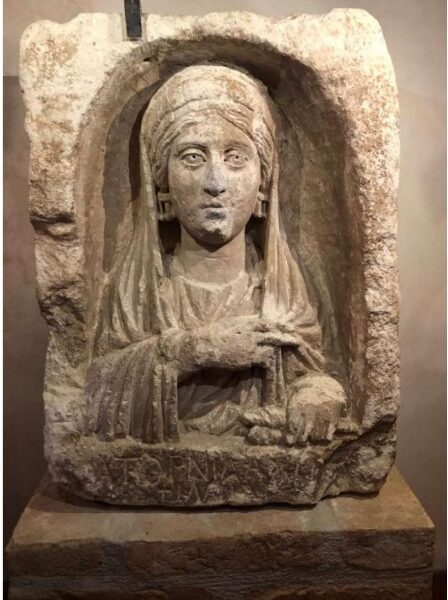A funerary stele from the second century with a loving inscription in Ancient Greek to the deceased woman's spouse was returned to Turkish authorities by Italy on Friday after an investigation revealed that it had been illegally dug up from south-east Turkey.
After conducting a thorough investigation, Italy's specialized Carabinieri paramilitary police art unit stated it had discovered that the item had been unlawfully exported before ending up in a private Florence, Italy, home after being bought in France.
The art squad has long been in the forefront of initiatives to ensure that, in the event that they are transported without authorisation, artistic and archaeological works are returned to their proper place of provenance. Its efforts have led to the return of hundreds of artworks and artefacts to Italy from renowned museums and private collectors around the world.
The stone work depicts a noblewoman, wearing a veil and a tunic. Her right hand is placed on her left breast. Under the bust re figuring the deceased is an inscription in ancient Greek reading, "Satornila, the wife who loves her husband, farewell!"
The stele was illegally excavated near the ancient city of Zeugma, in what is near Gaziantep, in present-day southeastern Turkey, the police said. It dates from the mid-to-late second century, the Carabinieri said.
Zeuguma, on the Euphrates River, was first an ancient Greek settlement and later became part of the Roman Empire. It was founded around 300 B.C. by a general of Alexander the Great.

